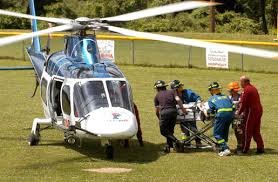 The main topic on my mind this winter: rural healthcare. We have an excellent eye doctor and dentist who come here once a week, so I feel blessed! I receive my primary care from a small clinic about 25 miles south. However, for my annual physical, I drove 85 miles south, into South Dakota! For my mammogram last week, I drove 80 miles north. If someone is ready to have a baby, they also must drive 85 miles north to deliver. Those who have had a heart attack since I came here, were taken by helicopter to a hospital. More than once, I heard the faint helicopter wop wop get closer and closer to our little town to pick up a critically ill person. Those who can wait an hour for treatment, are transported by ambulance.
The main topic on my mind this winter: rural healthcare. We have an excellent eye doctor and dentist who come here once a week, so I feel blessed! I receive my primary care from a small clinic about 25 miles south. However, for my annual physical, I drove 85 miles south, into South Dakota! For my mammogram last week, I drove 80 miles north. If someone is ready to have a baby, they also must drive 85 miles north to deliver. Those who have had a heart attack since I came here, were taken by helicopter to a hospital. More than once, I heard the faint helicopter wop wop get closer and closer to our little town to pick up a critically ill person. Those who can wait an hour for treatment, are transported by ambulance.
Most small towns have a clinic, some even a small hospital. However, they struggle in at least two ways. Making ends meet is a nightmare, as is attracting quality healthcare professionals. Around here we have some dynamite nurse practitioners who keep us healthy. However the doctors in residence are leaving this summer because their 3-year visas are up. The small clinic south of here doesn’t have any doctor that I know of, except some visiting specialists. The problem: few professionals want to come to isolated small towns. The ones I meet are unique: they grew up in North Dakota or nearby states and feel a commitment to the rural communities. It’s a personal thing for them, serving the underserved. Their workloads are huge, though, as they also serve the nursing homes.
If you are interested in this topic, the best resource to get you going is here.
From a medical journal:
“The health care systems of urban America have expanded at a pace reflected in the percentage of the economy dedicated to medical care: from 8% of gross domestic product in 1980 to 13.5% in 1998.1 This growth has not been matched in rural communities because the most important components of that growth—the highest and newest technology, the expansion of systems to monitor and track care-giving and costs of care, and the entry of new types of professionals and institutions into the field—have all occurred largely in urban areas. Rural America remains relatively under-resourced in health care. Many rural communities continue to experience shortages of physicians; 1,182 non-metropolitan areas or populations were designated as Health Professional Shortage Areas (HPSAs) (US Dept of Health and Human Services, unpublished data, 2000), and 36.8% of all rural hospitals lost money compared to 32% of urban hospitals under financial strain.”
I watch a light snow fall as I write. The sky is grey and cloudy, and the roads will be treacherous soon. Could a helicopter navigate the ominous skies today, if someone has a heart attack? If one of our pregnant ladies starts her contractions, will the ambulance get through on the slippery roads? These are unsettling thoughts.
So that is it for now. Winter up here does not provide many adventure opportunities to write about. The camper is tucked away in the garage, closed up tight. Tango is asleep in my chair near the electric wood stove. I feel rusty as a writer. However, none of this has prevented me from dreaming and planning ahead. The first week in April I will take Amtrack to Spokane, WA. My son and DIL are moving there, and I will help them settle in. The Amtrack line from Chicago to the West Coast runs about 3 hours north of here (Minot), where I will hop on for a fun ride. At some point I will take the camper into Minnesota, the only lower 48 states I have not visited. I decided to keep the pop-up for a few more years, which I was going to trade in after a scary incident where I could not get the “pop-down” switch to work.
I decided against getting a gun, after writing about it last fall.
I have been occupying myself by learning to really quilt. Before, I only played around with small quilts for my dog and pillows.
Yeah Broncos!
Forty days until Spring!



Learning to quilt is a wonderful use of time until the weather warms up and you can follow your usual pursuits. I don’t know much about helicopters, but I think they can go almost anywhere, in all kinds of weather. They have made living in remote areas a lot less treacherous!